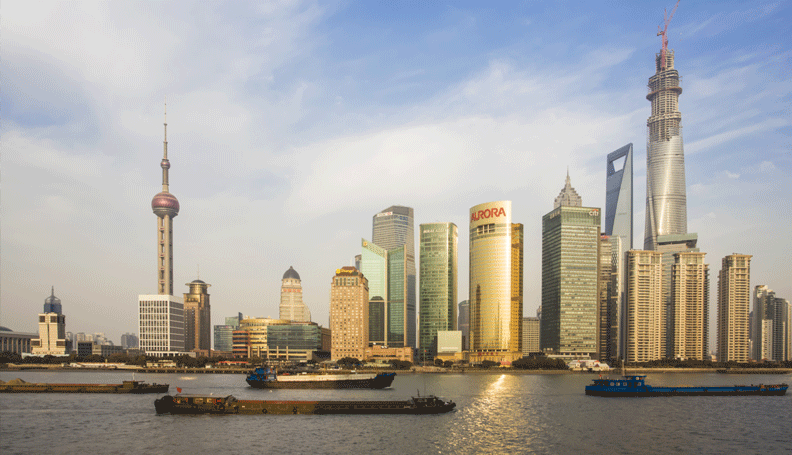
Tao Zha is executive director of the Federal Reserve Bank of Atlanta's Center for Quantitative Economic Research. He is a U.S. citizen who was born in China, and his research interests include macroeconomics, econometrics, and the Chinese economy. Economy Matters staff writer Karen Jacobs recently spoke with Zha about China.
Karen Jacobs: The trade dispute between the United States and China has agitated global financial markets, increasing uncertainty around economic and earnings growth. Do you expect a resolution in the shorter term?

The Atlanta Fed's Tao Zha.
Tao Zha: We don't know when it will be resolved—that's part of the uncertainty. That uncertainty is not healthy. It also looms over monetary policy. The Fed cut rates in mid-September, saying the trade uncertainty was holding back growth. A resolution is going to take time, and both sides will be hurt. Because of the trade imbalance, it's conceivable that China will get hurt more, but the United States is also feeling the impact because of the effect of tariffs on prices of consumer goods. [The United States imported $539.5 billion in products from China in 2018, compared with its exports to China of $120.3 billion in goods, according to census data.] The consumer certainly is going to bear the cost of this trade war. Stephen Schwarzman [chief executive and cofounder of Blackstone] made a good point that China is growing so fast and has been taking advantage of the openness in the developed countries. The question is how to strike a trade agreement such that the trade barriers in China will be reduced to allow other countries to enter its market.
Jacobs: Do you have other thoughts on the topic of trade?
Zha: There are other ways to address the dispute. There could be a multilateral approach with many other countries encouraging China to lower its barriers to market entry. With trade, one of the things that is underappreciated by people is that the Chinese currency is devalued, so that will lessen the impact of trade on the Chinese economy. A multilateral approach is more effective as China is such a large economy.
Jacobs: China has had an incredible pace of growth over the last 40 years fueled mainly by manufacturing. Now, it is looking to move to a growth model that emphasizes consumption over investment. As you know, there are concerns about the pace of China's growth. What factors account for the slowing growth? How has that growth changed the lives of people?
Zha: The growth has to slow down. It has been remarkable growth, and the middle class has been enjoying a good life, but the gap is widening between the rich and poor and that could be a problem. Additionally, some regions are much richer than others. To make up the losses from investment, consumption in China has to increase significantly. Those are very serious challenges for China. Increasing the consumption takes time. Young people now like to consume more than older generations, but their purchasing power to carry the whole economy is limited.
Jacobs: What are other potential economic hurdles for China?
Zha: Productivity has been slowing in China over the past few years. Another issue is innovation. With a lot of firms being indirectly controlled by the government or influenced or favored by the government, that could be an impediment [for innovation] in China. Private enterprises have a hard time competing with those favored by the government. Second, productive enterprises may be unwilling to grow larger. For companies to be efficient, they have to be able to fire people. But cutting the workforce to improve productivity could be politically costly because [the government has] a desire to keep people employed.
Jacobs: Hong Kong has been in focus lately, due to protests there that have gone on for months now. What are your thoughts on Hong Kong's economy in light of the unrest?
Zha: Hong Kong is definitely in bad shape economically. If this continues, there's no doubt that it is headed for recession. The root of those protests is also probably related to economic reasons. Young people can't afford housing, and the wealth inequality is a serious problem facing China. The protests in Hong Kong will put a lot [more] stress on the economy.
Jacobs: How have advancements in technology/fintech helped the Chinese people?
Zha: Fintech has reduced barriers for people to pay and lowered the cost [of doing business] for merchants. Ordinary people use mobile payments in China now. Technology helps raise the standard of living overall. But how fast China can move up to the living standards enjoyed by developed countries? That still remains to be seen.
Jacobs: Are you working on any research tied to China now?
Zha: I'm working on a couple of projects: one related to debt problems in China, the other on China's financial system and its impact on macroeconomic issues.




